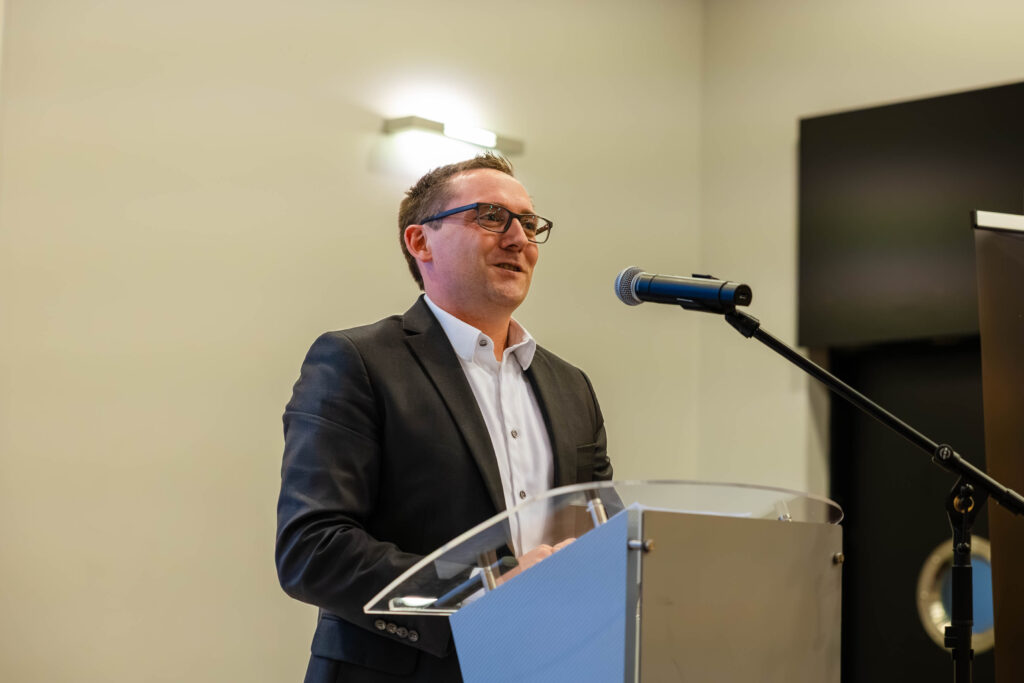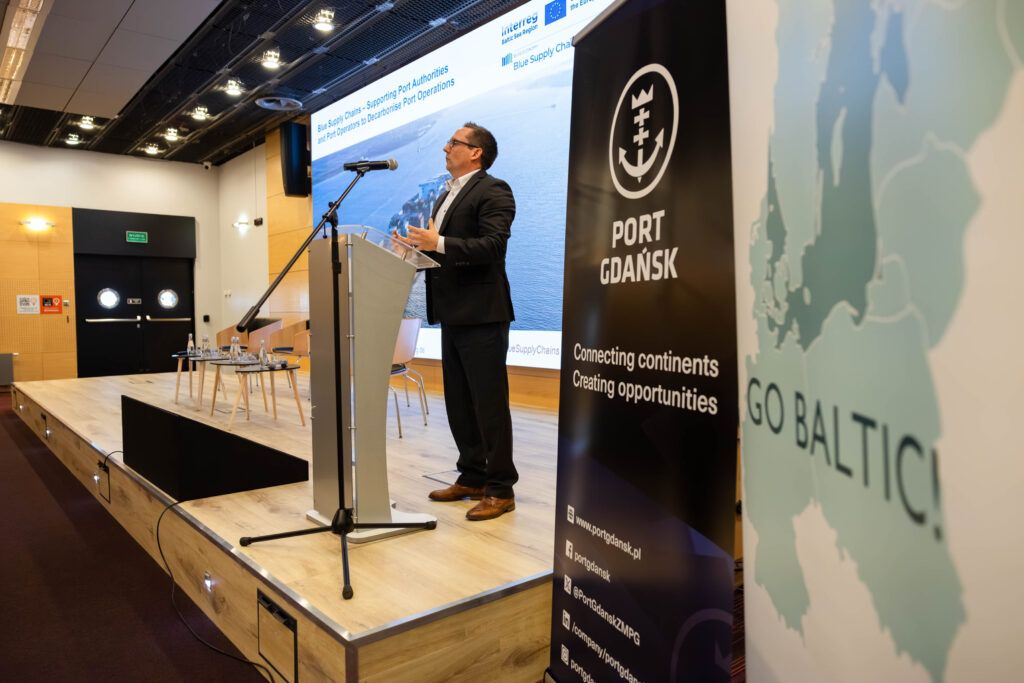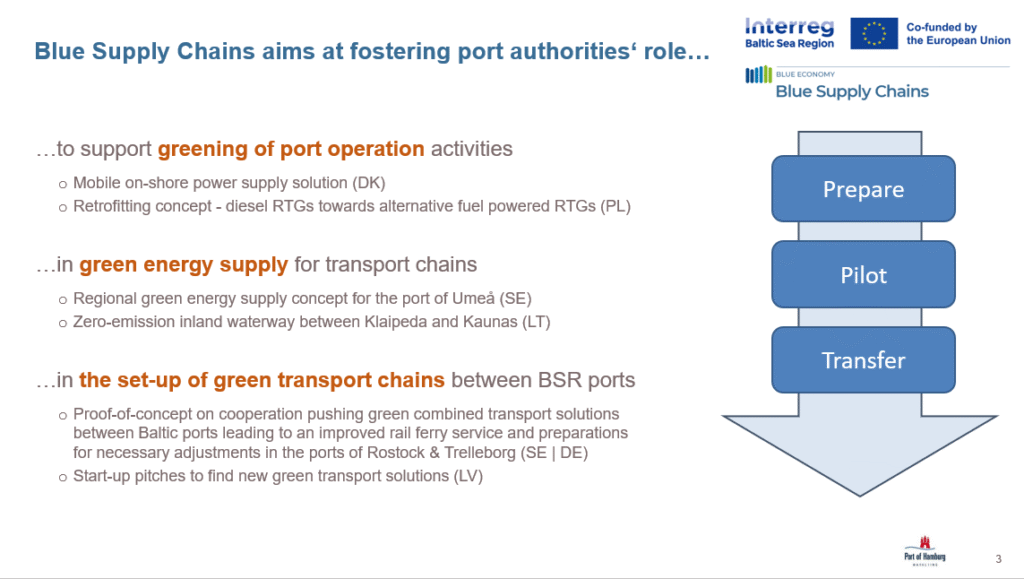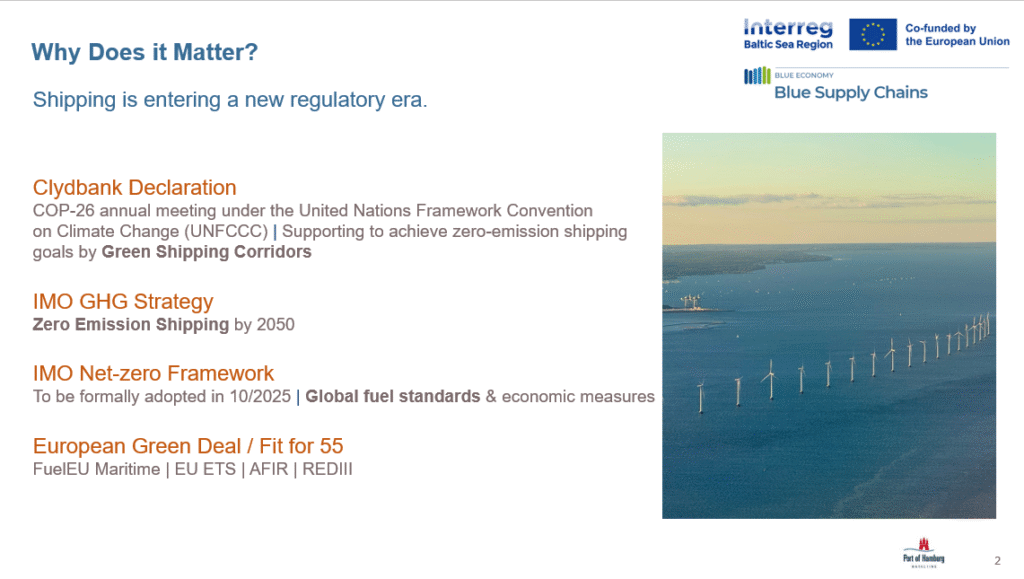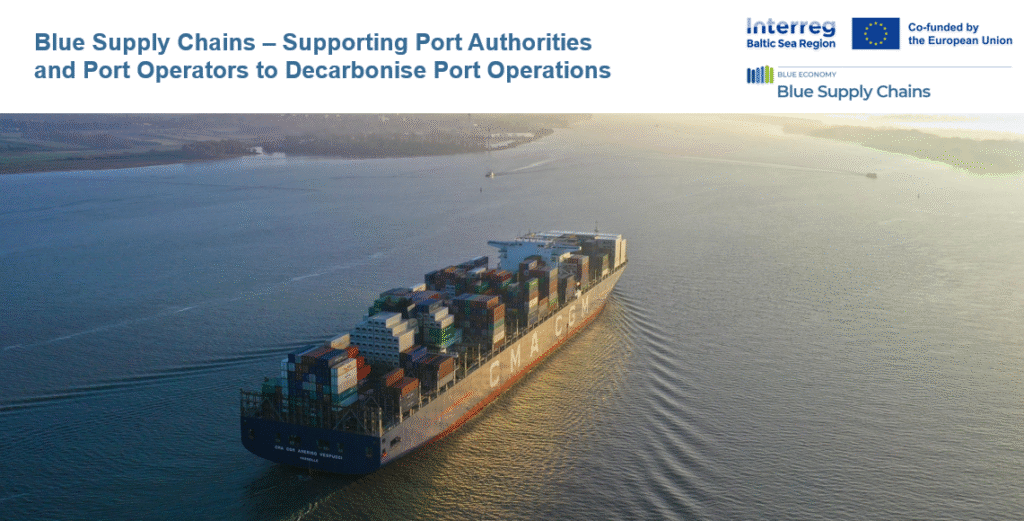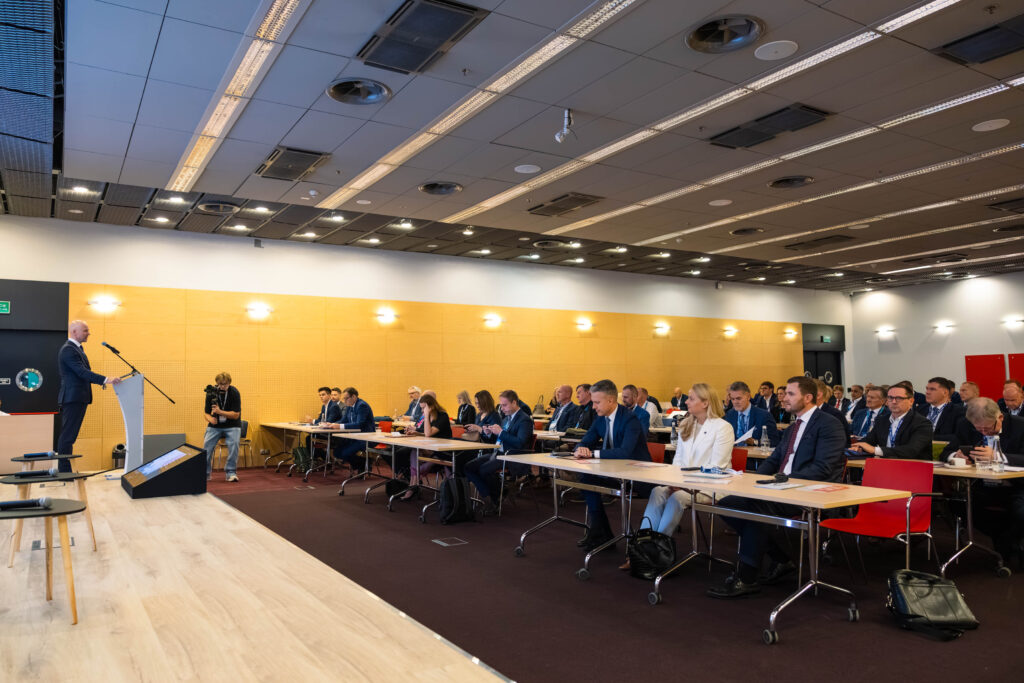15/10/2025
Oct 15, 2025
The Blue Supply Chains project, led by Port of Hamburg Marketing, is empowering ports across the Baltic Sea Region to transition toward zero-emission operations. Aligned with the IMO GHG Strategy and the EU Green Deal, the initiative supports port authorities and operators in reducing emissions through innovation, pilot projects, and knowledge transfer. To promote knowledge sharing and practical implementation, the BSC project and its two roadmaps were showcased at the Baltic Ports Conference, organised by the Baltic Ports Organization and Port of Gdańsk.
At the BPO annual event, Baltic Ports Conference, hosted this year in Port of Gdańsk, session III “Times are …?” featured a speech by Stefan Breitenbach, Head of Project Department at Port of Hamburg Marketing (Lead Partner of the Blue Supply Chains project) on how the project supports port authorities and operators in decarbonising port operations.
Ports entering a new regulatory era must adapt to ambitious environmental targets, such as the IMO’s 2050 zero-emission goal and new EU frameworks like FuelEU Maritime, EU ETS, and AFIR. Blue Supply Chains demonstrates practical pathways for compliance by focusing on three key areas: greening port operations, green energy supply, and green transport chains.
Denmark
Among the flagship pilots, Port of Skagen introduced a mobile on-shore power supply system for smaller fishing terminals, providing up to 1.5 MW of clean energy. The solution, tested with two pilot vessels, achieved an estimated 86% reduction in CO₂ emissions and saved over 127,000 litres of bunker fuel annually.
Poland
In Gdynia Container Terminal, a retrofitting concept for diesel-powered Rubber Tyre Gantry cranes was developed to enable electric or alternative-fuel operation. The study demonstrated potential CO₂ cuts of 60-80%, significant noise and energy reductions, and 50-70% lower operating costs, proving that environmental benefits can align with long-term financial efficiency.
Green Energy Roadmaps
In Lithuania, the project advanced the electrification of inland waterways along the Nemunas River, replacing diesel-powered vessels with electric push boats supported by new charging infrastructure. Meanwhile, in Umeå (Sweden), stakeholders co-developed a green bunkering and charging strategy, assessing future energy demands and preparing for hydrogen, ammonia, and methanol fuels to power climate-neutral ports. Both documents were created as part of the Blue Supply Chains (BSC) project and are known as Green Energy Roadmaps.
Through joint workshops, pilot demonstrations, and feasibility studies, Blue Supply Chains strengthens the role of ports as active enablers of decarbonisation. It highlights regional cooperation as essential for establishing green transport corridors and fostering technological innovation across the Baltic Sea.
The decarbonisation journey will continue through the upcoming H₂ Derivatives@BalticSeaPorts project (2025-2028), which will enhance port capacities for handling green hydrogen derivatives, supporting infrastructure planning and policy development for the next phase of the energy transition.
At the Baltic Ports for Climate Conference, hosted in Gdynia in November 2025, a dedicated session will focus on insights from the Blue Supply Chains project, including keynote speeches, a panel discussion, and opportunities for networking and site visits.
Photos: GospodarkaMorska.pl
